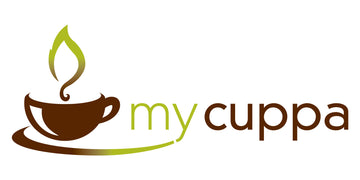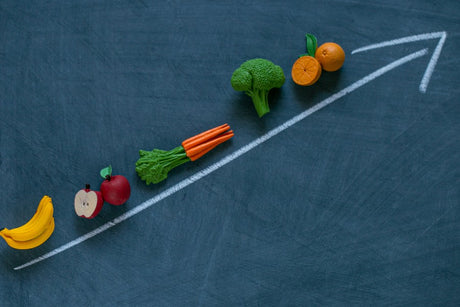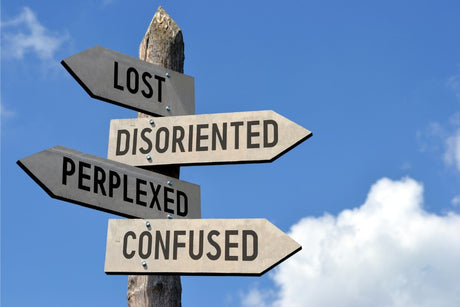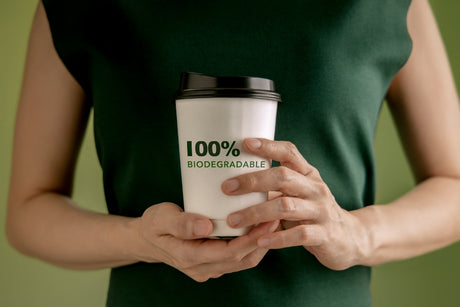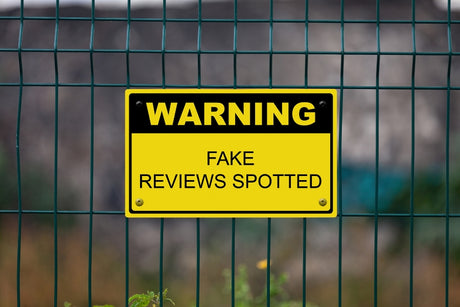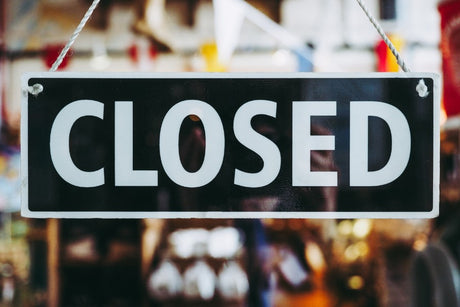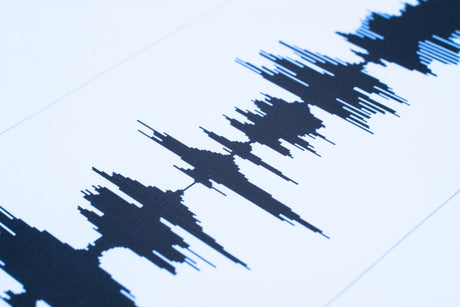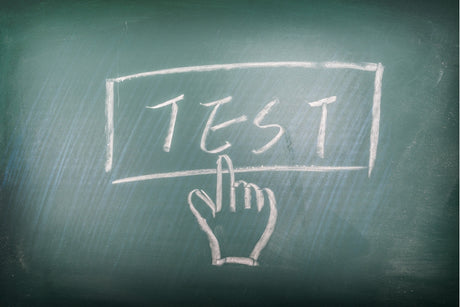If you have followed our newsletters over the many years, you will have read a few of our observations on the Australian coffee industry. Sometimes we like to point out the obvious, albeit controversial and other times it's kind of poking a bit of fun.
Whether it has been the explosion of new brands, rise and fall of micro-roasters, the lack of strategic appetite for mergers and acquisitions, a dark underbelly of cafe culture, pretentious promises of all things specialty, fake marketing of medal winning coffees or the real truth behind certification programs, we try our best to cover topics in a transparent and truthful manner.
So what do we think might unfold in 2019 and beyond for our beloved world of coffee in Australia ?
Brands and Leaders
New companies continue to spring up everywhere. There's no shortage of folks believing they can do it better, cheaper and faster than everyone else. Business models get thrown out the window when the pursuit of passion prevails.
Most of the new growth is in regional parts of Australia which makes for interesting considerations given the recent stats showing capital city populations are surging at the expense of regional areas in decline at a rapid rate.
It's an over-crowded and saturated market but does anyone care ? Nope, because there seems to be a sliver of hope, that glint in the eye of every coffee roaster in Australia.
It's called self-belief and as long as they can make enough money to keep the lights on, the gas flowing and the drum spinning it's all that really matters to most roasters.
Micro roasters are doing it pretty tough although you wouldn't guess it by looking at their faces. It's OK to not be the biggest so long as you're enjoying what you love and sticking to your principles.
Growth in cafe segments has declined for the first time since 1995 but the reports on this statistic are not easily obtained as nobody likes to publish bad news or negative sentiment in hospitality.
Acquiring new wholesale customers has become more difficult and these days often achieved with a "drive by" - stealing from another coffee company.
It's how the business world turns round and I guess it's exactly what happens in most other industries, e.g. energy, telecommunications, finance - applying marketing pressure to force customer churn.
This agitation is driven more from the supply side than from demand. On balance, most wholesale customers are relatively happy, but I suppose when they can save a few bucks and still maintain an equivalent standard, they will be even happier with a change, although many wholesale customers still fear losing their own customers from swapping coffee suppliers, but this fear is subsiding and is not the once powerful anchor it used to be.
It's really hard to differentiate at a product level now. Plenty of promises, but in reality, most coffee roasters on their day can turn out "great" coffee with enough focus and resources applied, but it's more about being able to back it up and do all the numerous small things right every single day - which is not easy.
You can't slip up, there is zero tolerance - such is the expectation for coffee quality in Australia these days. The question is always - how can I make it better, it's never about how to make it cheaper unless you have captive customers.
Australia's coffee market does not have a leader - well, you could draw some basic conclusions on volumes and kilos sold, but the brands that would be mentioned as leaders in that context exist not because of quality or other aspects, but due to price and scale economies.
Ironically, some of the coffees tasted from the largest suppliers may also be the least enjoyed - so the term "leader" would need relative definitions as plenty of back-slapping and chest pumping takes place in coffee.
Our first prediction is that Retail Food Group (RFG) is in a serious world of pain (that's not a prediction but a real and obvious fact) - so don't be surprised if Phil DiBella swoops back in to reclaim his brand in a similar move to how Kerry Packer played Alan Bond all those years ago - selling high and buying back in at a much lower price. Good on him if he can pull it off.
Moccopan is halfway through building the largest roasting plant in Australia - it's huge.......no, it's bloody well epic and literally twice the size of anything running today.
This monster new facility will continue to power McDonald's Australia and New Zealand coffee and a couple of other private label/associated brands under the group umbrella.
It will be interesting to see if the qualities can be maintained from such a large platform and how the transition will be managed - calling it out as a huge risk but the question remains - will McDonalds coffee drinkers really care if the coffee is shite for a few weeks ?. Nah, they'll get over it and be back for more.
Veneziano has been highly successful in growing their volumes for a decade and today they are well placed in the top few players by scale. Their ability to span the many segments in coffee is to be applauded and to also maintain a focus on specialty/cafe craft products at the same time as lowest price for supermarket and private label offerings must be super-duper challenging.
It will be interesting to see if that momentum can be maintained or if one segment falls as others rise - it's a lot of balls to be juggling in the air. Hats off to them for trying.
Mergers and Acquisitions
Australian deals remain thin on the ground - a stark contrast to activities in the US and Europe where there has been a frenzy of deal making from large establishing firms seeking to bolster their specialty credentials or snap up faster growing rivals to feed their top line aspirations or to enhance their intellectual property assets.
The most recent and notable local deal in 2018 involved Italian company Zanetti acquiring The Bean Alliance group in Melbourne a few months ago - there are no doubt some conditions on the arrangement around performance and earn-out, but it will be interesting to see if the strategy bears fruit and if other overseas companies have brave appetites to want to play in one of the world's toughest coffee markets outside of Italy.
Beverage companies like Coca Cola (US) and Lion are rapidly ramping up their coffee, tea and the barn-storming Kombucha acquisitions across the globe to grow their distribution channels - a clear sign sugar-laden carbonated beverages are in sharp decline from competitive alternatives.
To date, Lion has only dabbled in coffee-related dairy with it's Dare milk brand but we hear rumours of a larger play as the success from the Coca Cola Amatil (AUS) purchase of Grinders in Australia around 12 years ago has helped CCA maintain top-line sales revenues to offset falls in sugar drinks.
Grinders has been leveraging CCA's sale force and portfolio of products to lock up wholesale customers like large venue operators and outsource facilities management as well as tremendous retail sales from supermarkets.
Whilst I haven't studied the financial performance of CCA, it's a good bet that their coffee division now pulls considerable weight inside CCA that had previously maintained a myopic view that Coke is it !.
The question remains if Schweppes has the foresight to make investments into more diversity in their beverage range.
Will the distribution channels for coffee in Australian begin to tighten ? - we think so.
Participation medals
Coffee competitions reached peak silliness in 2017 and 2018.
Medals, hundreds of them were handed out willy-nilly to almost every entrant. Some have even joked it's like a reward for participation.
We stopped competing a couple of years ago as medals in coffee became like wine bottles - used and abused.
It was obvious long ago that some companies used cheque-book coffees, paying hundreds of dollars per kilo for rare and exotic lots that bear absolutely no resemblance to their everyday offerings.
The bait and switch routine treated customers as fools and there was nothing the event organisers could do about it except smile and take the rich stream of entry fees.
Some companies would enter 20 or 30 coffees and stack a category with 6 or more entries in the hope of crowding out competitors.
It was also apparent that some winners were conveniently "out of stock" of the medal winning coffees just 2 weeks after the event - but happy to keep promoting the win as if it applied to all their products.
Sure, we get that the coffee was high grade and limited in supply, however, the basic rule of theses competitions has always been that an entry must be commercially available.... reality is a rule never enforced and easily flaunted.
The largest competition is a commercial operation by a privately owned media business - with lucrative entry costs generating considerable revenues and then hitting up winners to pay for expensive write ups and media promotions - almost a perfect eco-system.
It was quite ironic and hilarious that a recent competition many of the top medals were awarded to entrants that were also on the judging panels and even head judges - a clever trick used by another large company a few years ago - stacking the judging tables with plenty of their own staff. Not taking anything away from winners, but it does raise eyebrows.
The regional competitions aligned with the Royal Agricultural Societies are a little more scientific and controlled in their evaluation of submitted coffees.
Obviously, they are not dealing with the same volumes of a major event like Golden Bean where manic testing of 1,500+ coffees in just a couple of days may result your fate being cast by judges with fatigued palates or pressured baristas running 150% overload struggling to get coffee samples dialled in properly within a short time frame.
We think in 2019 more Coffee Companies will lose interest in competitions. Bragging rights are only good for a brief moment in time, it's what you do all day, every day that matters and mostly the events are preying upon insecure roasters that are new to the industry or trying to prove themselves worthy.
With so many variables and potential loopholes, the notion of "benchmarking your coffee against others" is perhaps drawing a long bow when the stakes are high and cheating is an easy way to the top.
We also tend to believe consumers are becoming less impressed with chest beating medal winners and more concerned about reliability and everyday value.
